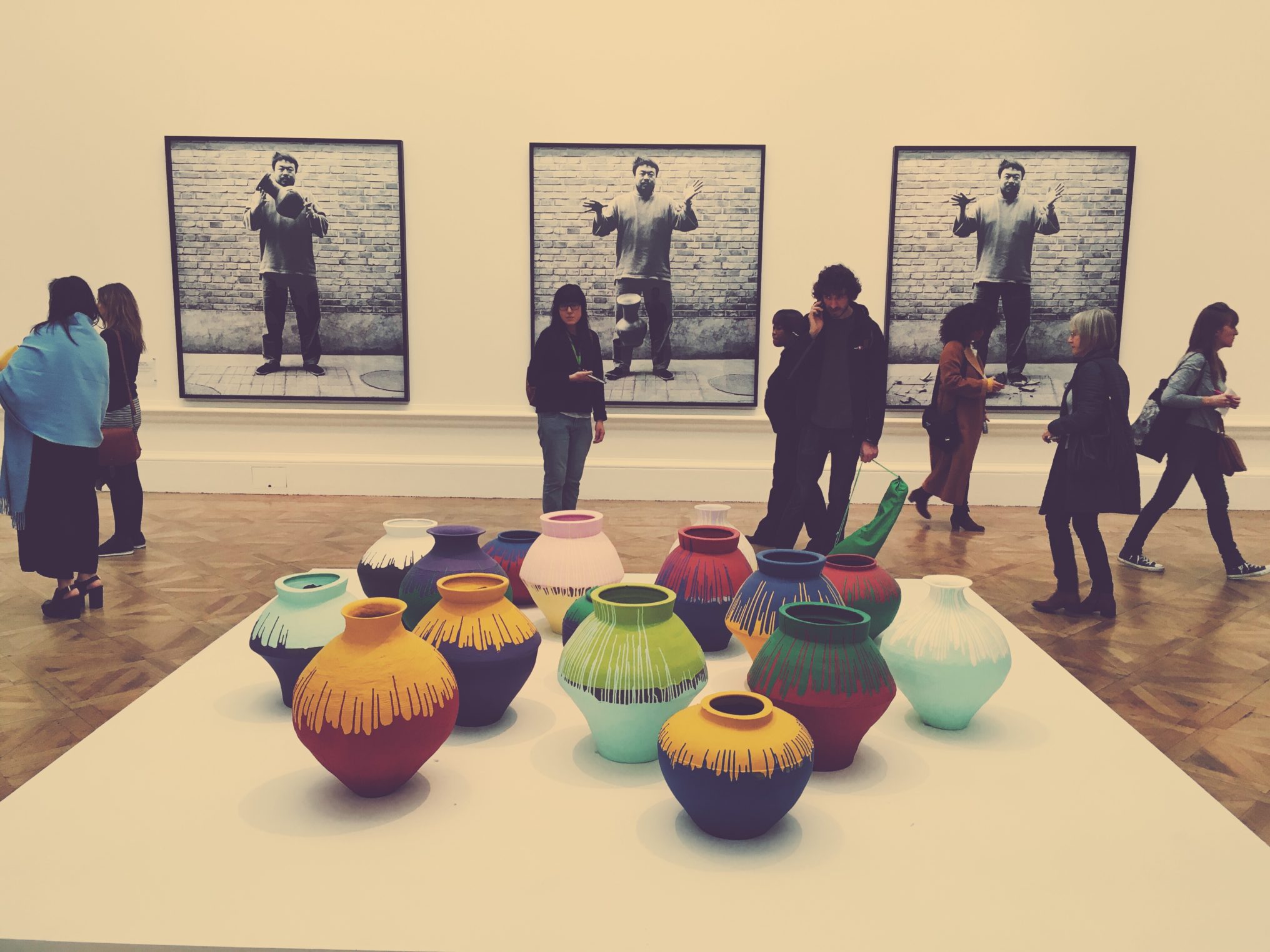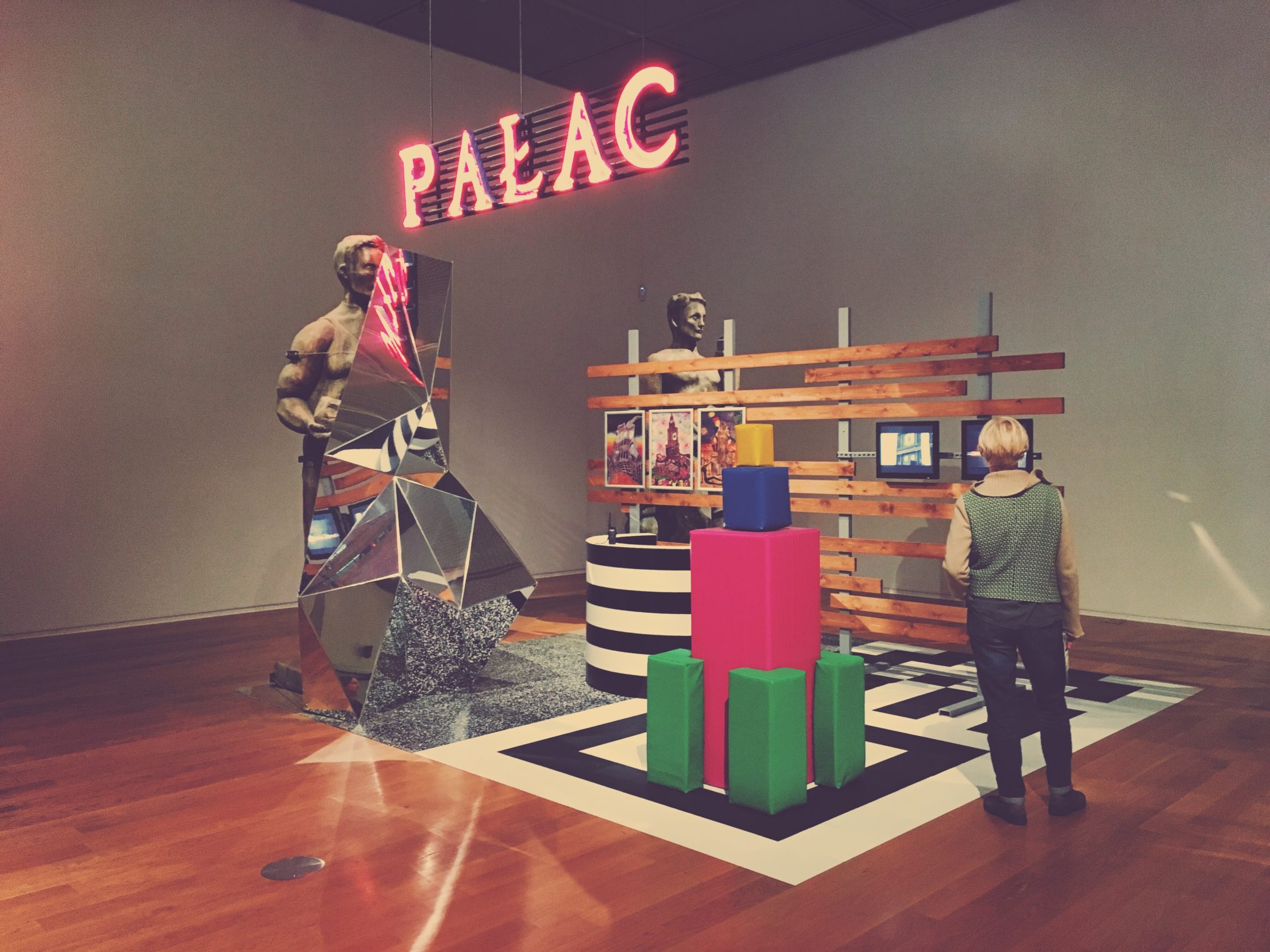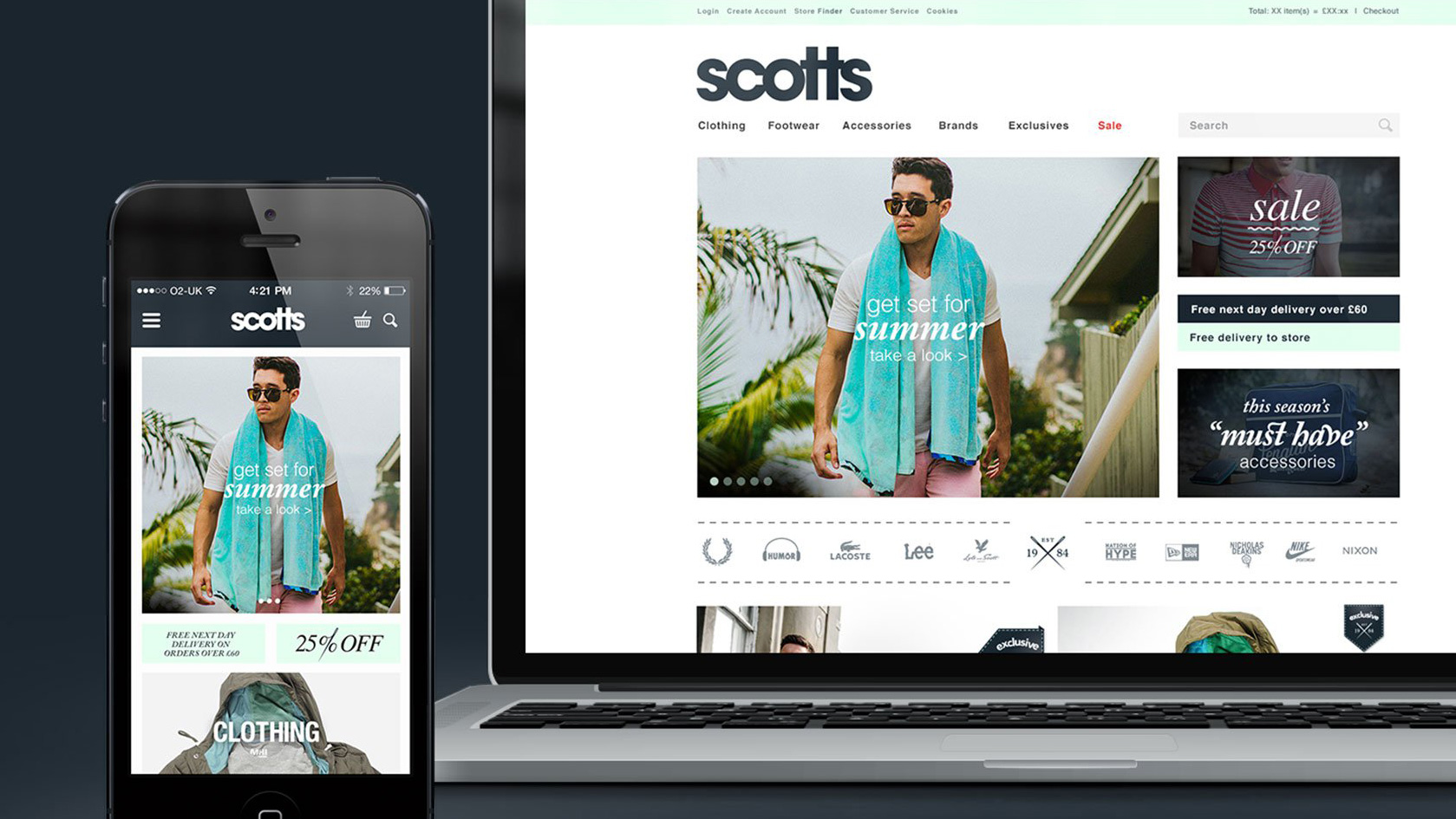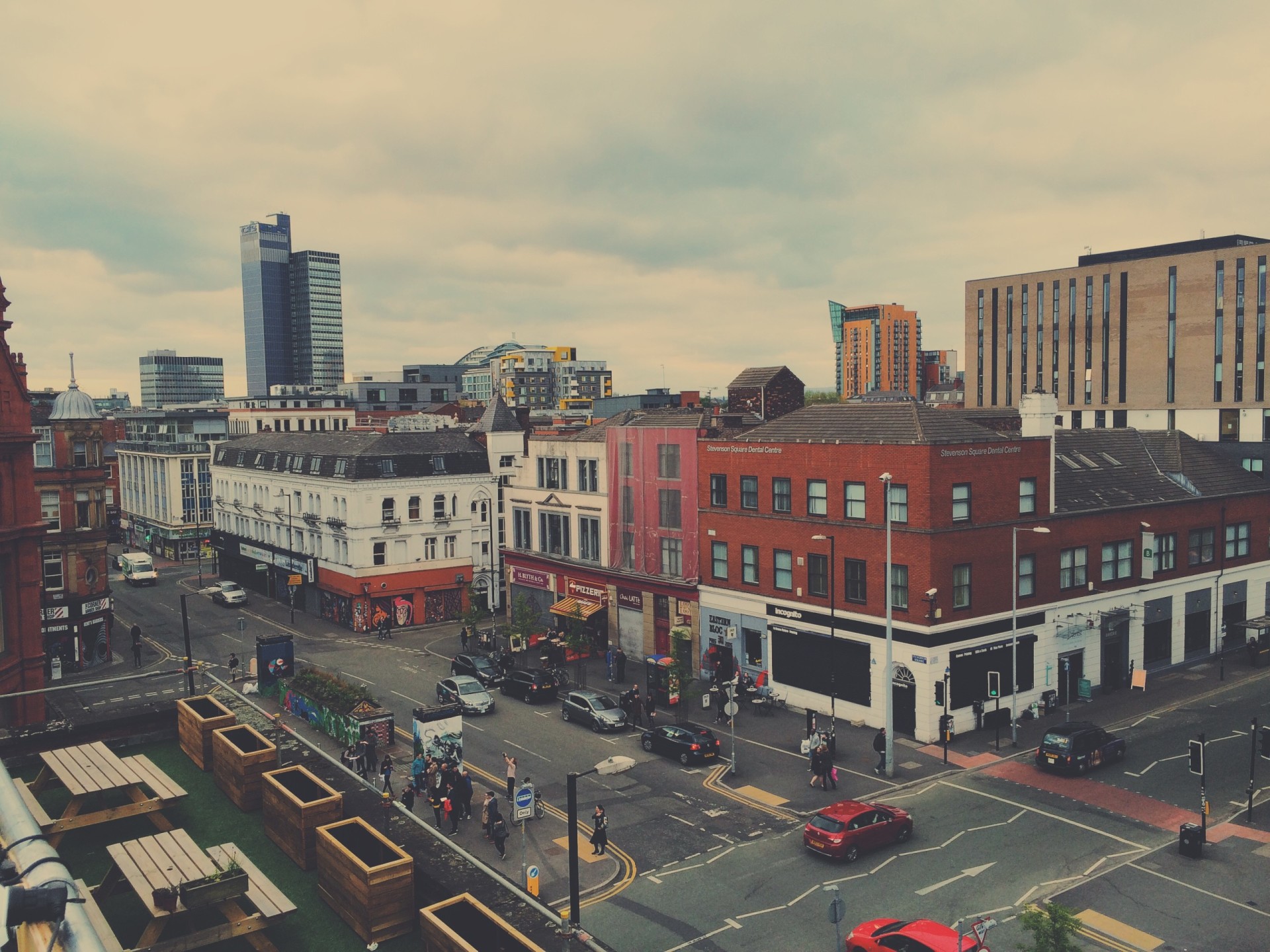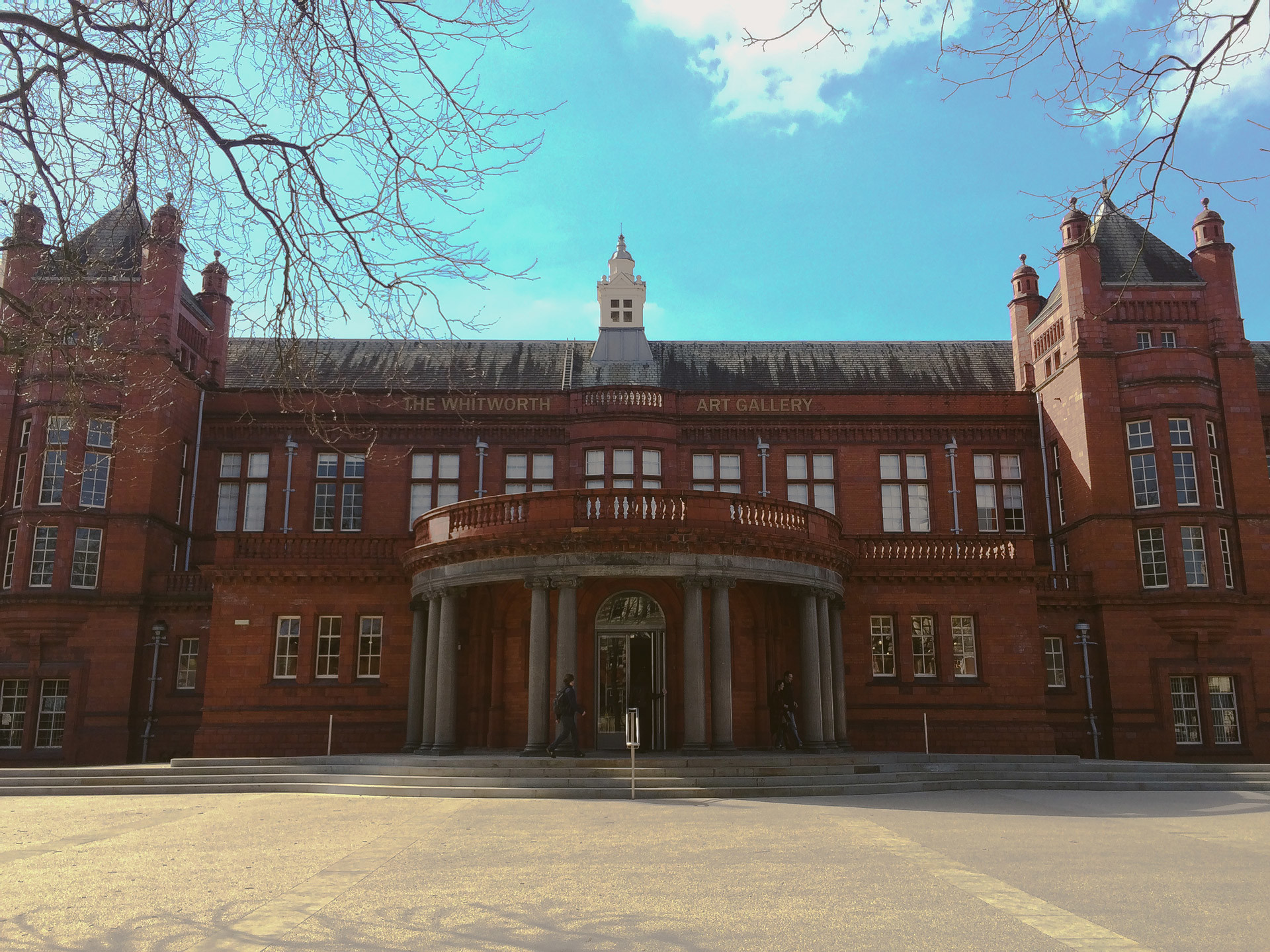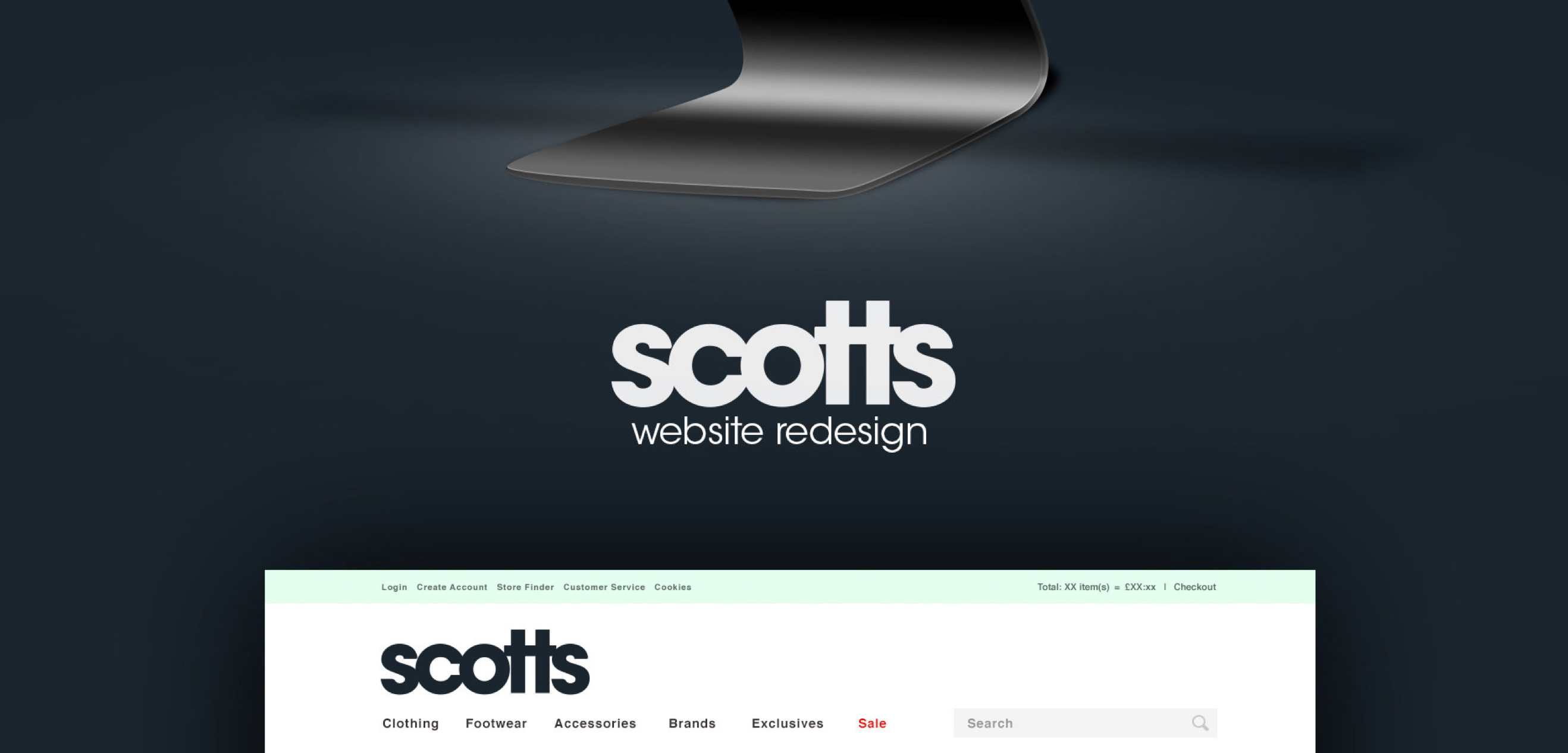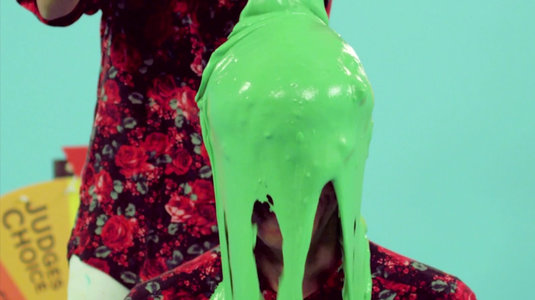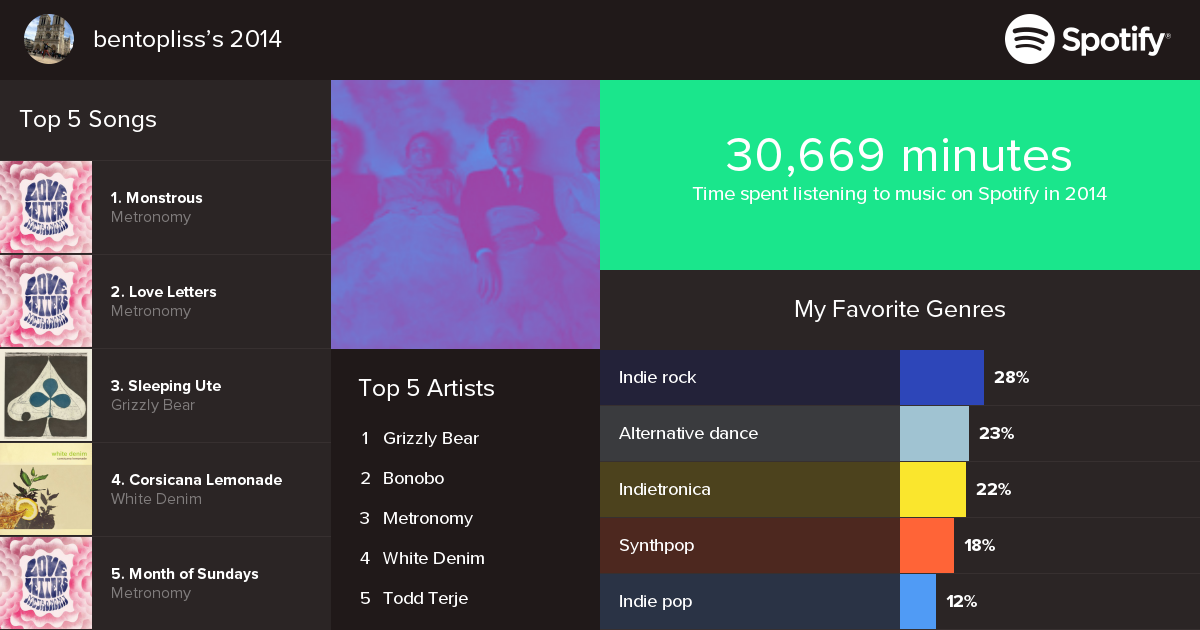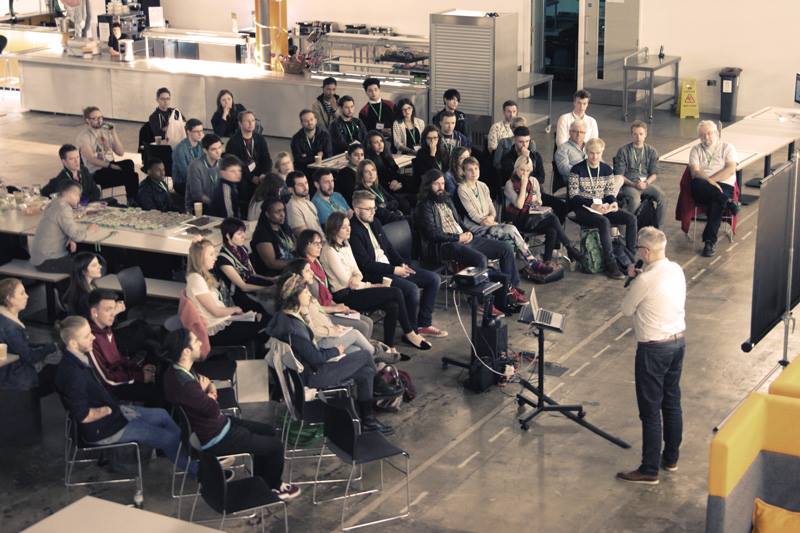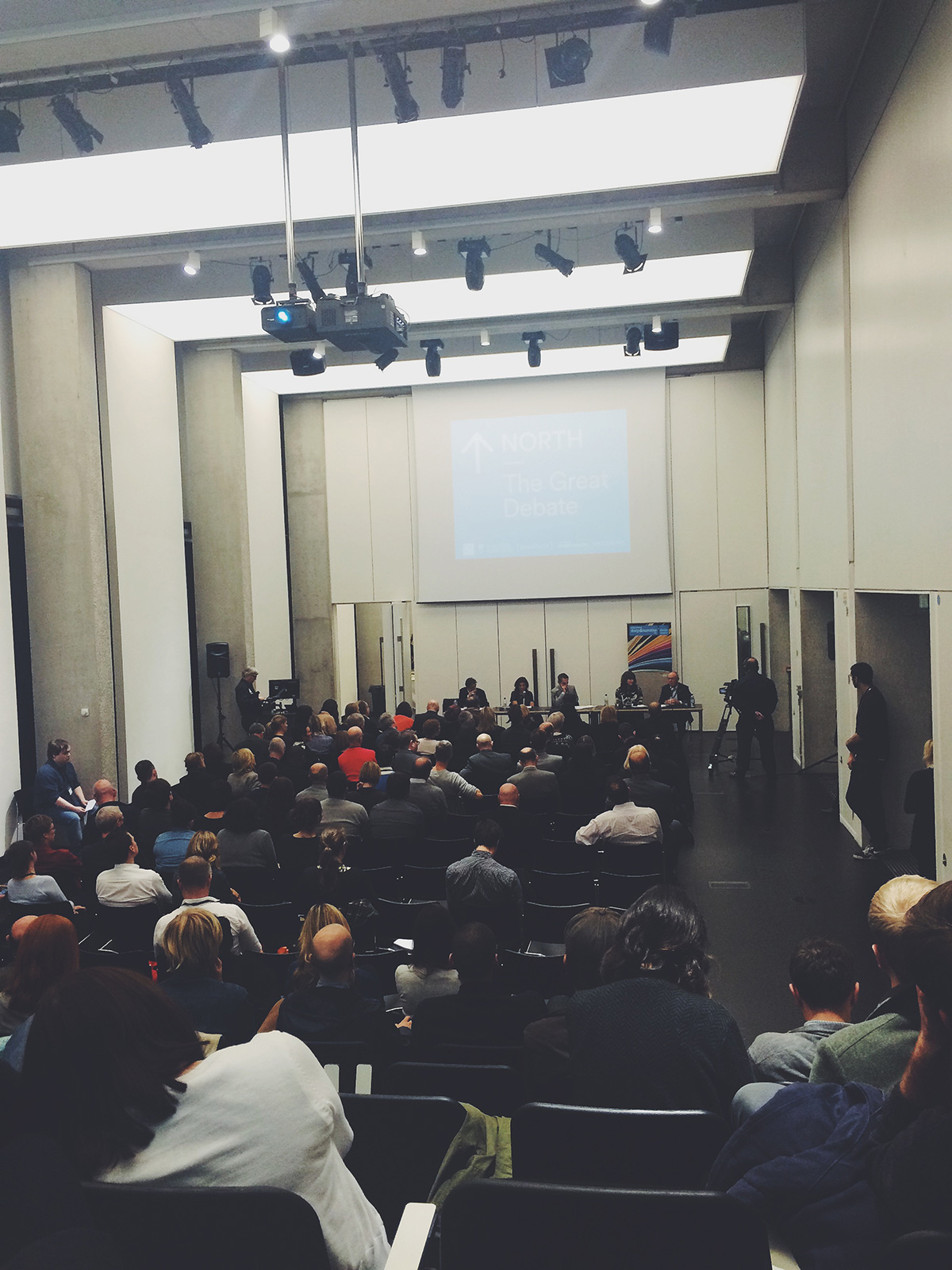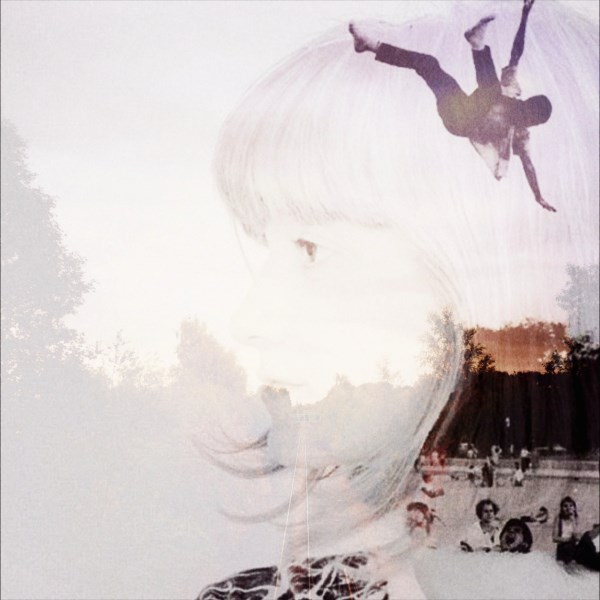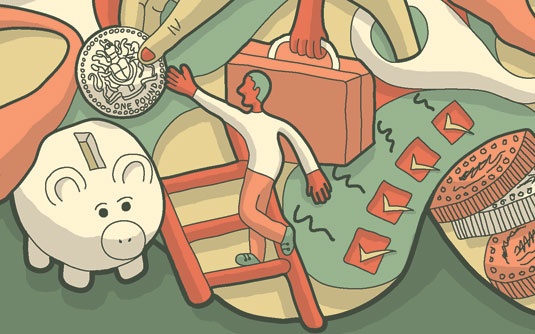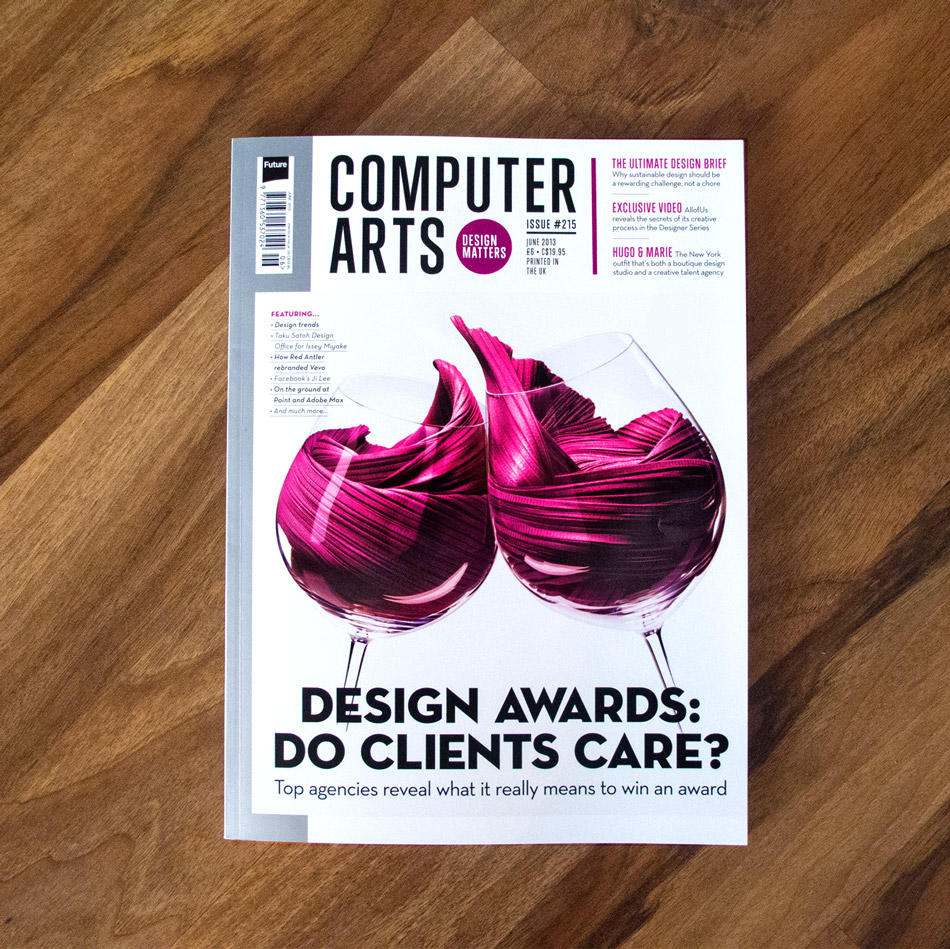It was a beautiful autumn day and my sister was up visiting from London, so we headed for a wander around some of Manchester's finest galleries and exhibitions. These are some of the highlights.
Walking home
After being featured in the Adweek Talent Gallery a couple of months ago, I'm pleased to say that the project I worked on for Scotts Menswear has now been featured on Behance, as part of their Web Design Served curated gallery. Check out the full project here or follow me on Behance.
Manchester After Hours is the rainy city’s take on the national, annual Museums at Night celebrations: for one night only, museums, galleries and libraries stay open late for some creative goings on - with nearly everything free to attend.
First up was the Unit X exhibition at Federation House. Unit X took over Federation House for its annual showcase of emerging talent from Manchester School of Art. Film, art, design and photography come together in exhibitions and installations throughout the building.
After a pit stop in Trof for a cheeky pint (the free bar ran out in Federatin House just as we got to the front of the queue), we bumped into the choir and brass band which were touring the Northern Quarter playing and singing to whoever was passing by.
Next stop was Fred Aldous which was hosting an evening of FREE creative collaboration including; live painting, photobooth mugshots and a Risograph zine workshop.
Up next was a visit to the roof terrace above Manchester creative agency, Music, where they were playing a few tunes whilst offering up good views back over Stevenson Square and the Northern Quarter.
 A crowd gathering around the brass band below.
A crowd gathering around the brass band below.
It was getting cold now, so we headed down to Ply below for a little break and to kill some time before heading over to the NCP car park in the centre of the Northern Quarter for our final event of the evening.
A-top of the NCP multi-storey car park on Church Street, musicians, choirs, street performers and brass bands deliver a pumping finale to the Northern Quarter’s proceedings. As the pictures and videos below show, it was a great way to end the evening with everyone getting involved in the carnival atmosphere.
What is required from a creative brief
A creative brief is a unifying document that identifies the important key benefits for a project or task. It tells the story and explains why it’s important to the audience, serving as a guide for the creation of new materials. It seems simple. Yet developing an effective creative brief is far more difficult than it may at first seem.
A poor creative brief can waste time and money, and creates frustration because the resulting concepts do not nail it.
A well thought out creative brief is imperative no matter the scale of the project. From quick turnarounds, amends or longer projects, a solid creative brief is the one document all parties refer to throughout the life of the project or task.
The key aspects of a creative brief are as follows:
1) Background/summary.
This is where the brief provides all the supporting, contextual and target audience information, as well as any customer insights or knowledge gained from previous projects and research.
Always provide more information than you think is relevent. Remember the person working on the job
may not be as familer with the task or a projects history as the person who created the brief.
2) Proposition.
What are the problem(s) which needs solving. Keep it short, and to the point.
3) Requirements.
This is where any other supplementary information is confirmed, this includes (but is not inclusive):
- Brand guidelines, styleguides and technical specifications.
- Supporting copy and headlines.
- Assets - Brand supplied or campaign imagery, logos, lockups or illustrations.
- All links/CTAs and their destinations.
4) Deliverables and objectives.
What is required and what do you expect to gain from it.
Eg. A webpage, banner, email, logo, page takeover, etc.
5) A reasonable deadline.
Liase with the creative department to get an idea of timescales if unsure.
If it is a large project, set intemediate targets/deadlines along the way.
6) Approval.
Before starting confirm everyone involved with the project and all stakeholders are happy and onboard.
It is then the job of the creative(s) to consider the brief, carry out suitable research (as required) and
present back solution(s) which answer the brief once completed.
Remember: Briefs are in their nature, brief. Use bullet points, keeping each point short and concise.
Avoid: Stating or illustrating how you want the final design to appear.
Further reading:
http://advertising.about.com/od/tipoftheweek/ht/How-To-Write-A-Creative-Brief.htm
www.bbrmarketing.com/blog/how-to-write-a-great-creative-brief/
http://chempetitive.com/chemunity/importance-creative-brief
http://www.jetfuelcreative.com/marketing/benefits-of-a-creative-brief/
http://www.creativeoncall.com/2013/08/19/7-simple-steps-to-an-effective-creative-brief/
http://www.commarts.com/columns/creative-briefs-shifting
The Whitworth, Manchester's gallery in the park, has just reopened after a £15 million renovation and expansion. Having never been before I had been wanting to check it out since the re-opening, and its well worth a visit. There's good mixture of exhibitions from photography, portraits, sculpture and art, with the exhibition spaces also adding their own character to the displays.
The park location is great, especially on a sunny day like day. Whether you're inside and catching glimpses of green out side or outside where the new glass extension cantilevers into the park.
My highlights were: The 1960s: Works by Peter Blake, Bridget Riley and others reveal the riotous colour, fashion and art of the era and Cornelia Parker's solo show. Cai Guo-Qiang, Unmanned Nature looked interesting, but there was a big queue so I just poked my head round the corner for that. Also worth noting is the 'War Room', a large space lined with the left over cutting sheets from the production of memorial poppy's.
Today in the UK we witnessed a rare astronomical occurance, a solar eclipse. A solar eclipse is where the moon moves in between the earth and the sun, blocking out the sun's light for a short period of time.
Its really impressive to witness, and is one of the only times you get a sense of being apart of system of moving rocks in space, and just how small we are.
The eclipse reached at around 83% coverage in the UK, with only two places on earth getting a full 100% coverage.
The next solar eclipse in the UK won't be until 2026.
This week I was fortunate enough to receive an email from Oscar at Behance to let me know that my work for Scotts had been selected by their curatorial team to feature on the front of their Adweek Talent Behance gallery.
Be sure to visit and check out the other great work on there if you've never done so, and if you want to follow me on Behance, check out my profile.

Looking at those numbers so far, I think I need to up my game a bit - or at least get a larger Behance following!
A few days ago I received an email from the good people at Creative Bloq about a follow-up piece to their wildy popular Designers and their tattoos article. This time the idea being 'Designers as you've never seen them before'.
We've featured a lot of designer interviews over the years on Creative Bloq, but a lot of the time we end up with very similar photographs. Here's a designer sitting at his Mac with Illustrator open and a bunch of vinyl toys on his desk! Here's a designer in her studio, with lots of inspiring artwork on display! Here's a designer leaning against a wall!
I sent over a few tales and the story they wanted to feature was from when I featured as part of the final of the BBC's Junior Apprentice TV show. If you want to read more about and also find out about what 9 other top creatives get upto in their spare time, head over to Creative Bloq.
2014 was the year I finally went premium on spotify, and pretty much ditched my dependence on iTunes. Below are my top 15 artists and tracks played last year as recorded by last.fm and some other interesting stats from the spotify round-up.
Top Tracks.
| 1 | Caribou – Can't Do Without You | 22 |
| 2 | Arcade Fire – Afterlife | 20 |
| 3 | White Denim – At Night in Dreams | 19 |
| 4 | Metronomy – I'm Aquarius | 19 |
| 5 | Todd Terje – Delorean Dynamite | 19 |
| 6 | alt-J – Hunger of the Pine | 19 |
| 7 | Caribou – Back Home | 19 |
| 8 | Bonobo – Sapphire | 18 |
| 9 | White Denim – Corsicana Lemonade | 18 |
| 10 | Arcade Fire – Normal Person | 18 |
| 11 | Metronomy – Monstrous | 18 |
| 12 | Metronomy – Love Letters | 18 |
| 13 | Grizzly Bear – Sleeping Ute | 17 |
| 14 | Bonobo – Jets | 17 |
| 15 | Bonobo – Know You | 17 |
Top Artists
| 1 | Bonobo | 219 |
| 2 | alt-J | 217 |
| 3 | SBTRKT | 194 |
| 4 | Grizzly Bear | 190 |
| 5 | Arcade Fire | 184 |
| 6 | Metronomy | 163 |
| 7 | Holy Ghost! | 162 |
| 8 | White Denim | 160 |
| 9 | Todd Terje | 159 |
| 10 | Caribou | 152 |
| 11 | Daniel Avery | 148 |
| 12 | Jagwar Ma | 145 |
| 13 | Jungle | 126 |
| 14 | Temples | 117 |
| 15 | Chromeo | 106 |
Based on my 2014 listenings, spotify have created this for 2015. Play it forward.
Behance Portfolio Review week, is global event happening in hundreds of towns and cities across the world organised on behalf of the online portfolio service now owned by Adobe. Last night was the Manchester event, and Jonny Evans at Degree53, who was hosting the night was good enough to ask me to help out and take one of the feedback sessions.
The night started off with a talk from Brendan Dawes, which took us through his work and general search for serendipity (and chaos). Brendan’s work has been featured in numerous journals including idN, Creative Review, MacUser, Computer Arts, Create, Wired, Eye, The Guardian, The Times, Communications Arts and was interviewed by Computer Arts in December 2008 for their "Design Icon" series.
The whole group then split into groups 8 or 9 groups for the portfolio reviews. I lead one group, and it was an enjoyable experience. I was impressed with some of the work on display and it was great to meet so many people passionate about design, illustration and photography.
I would like to say a big thanks to Jonny at Degree53 for taking the time to organise the event. Hope you don’t mind but I’ve also pinched some of your photos from the night.
For more photos check out the Degree53 facebook page.
Follow Manchester Behance Reviews on Twitter: @BeReviewsManc
Table Hosts:
Mark Stringer, Managing Director at Ahoy Digital (@ahoymark)
David Newton, Creative Director at Ahoy Digital (@LetsNotPretend_)
Simon Vaughan, Exec Creative Director at Amaze (@amazeltd)
Paul Normington, Art Director at Amaze (@Norm_ski)
Jade Sahota, Head of Design at Degree 53 (@jadie0503)
Tash Willcocks, Programme Manager at Hyper Island (@tashwillcocks)
Michael Watson, Creative Director at Project Simply (@projectsimply)
Speaker - Brendan Dawes (@brendandawes)
Host – Jonny Evans (@jonnylikes2rant)
Wednesday 29 October
Manchester School of Art
Benzie Building, Higher Ormond Street, Manchester M15 6BR
Last night I attended, “North: The Great debate”, a discussion between prominent members of the Manchester and UK creative industries as part of the Design Manchester festival at the Stirling Prize shortlisted Benzie building. The debate was chaired by Robert Yates, Assistant Editor of The Observer, with a panel including Sir Richard Leese, the Leader of Manchester City Council; Lou Cordwell, founder and CEO of Magnetic North; Professor David Crow, the Dean and Pro Vice Chancellor of Manchester School of Art; and Caroline Norbury, the CEO of Creative England
It was billed as “Growing by Design: the role of the creative industries in building a northern powerhouse” taking place against the backdrop of a seemingly unstoppable movement towards more devolution between the cities and regions, with the recent publication of One North and the plan by the leaders of Liverpool, Leeds, Manchester, Newcastle and Sheffield; Design Manchester’s Great Debate looked at how the creative industries can stimulate and create a prosperous and successful northern economy.
 There was strong discussion with several outspoken members of the audience being vocal in their opinions and whilst others had travelled from across the country to participate. The one area the debate was let down for me was the lack of an opposing voice in the panel with the members being predominantly Manchester based/focused. Although I suppose that is to be expected of a discussion happening in Manchester, with the main topic of conversation being Manchester.
There was strong discussion with several outspoken members of the audience being vocal in their opinions and whilst others had travelled from across the country to participate. The one area the debate was let down for me was the lack of an opposing voice in the panel with the members being predominantly Manchester based/focused. Although I suppose that is to be expected of a discussion happening in Manchester, with the main topic of conversation being Manchester.
'The cities of the North must have control of their own destinies' - @SirRichardLeese #northdebate
A recurrent theme was Manchester and its own (and often lack of a) narrative compared with other major hubs such as London. Personally I think Manchester has a pretty strong identity, and although creatively its reputation isn’t as strong globally as London, it however shouldn’t being trying to replicate that and instead play to its own strengths. Not that any of that really matters, for me if those in power want to turn ‘The North’ or Manchester into a globally renowned centre for the creative arts, its not about how to PR the region but rather to create a climate in which creative business want to setup in Manchester and can then operate successfully. This means having great infrastructure and office space at affordable rates to entice more business in, which then in turn creates more jobs and demand for talented individuals.
Further reading: Read Robert Yates’ article in The Observer.
Sponsored by Images&Co
Event partner: Manchester School of Art
Supported by APDIG (All-Party Parliamentary Design and Innovation Group) and Shoosmiths.
I love a good iOS photography app, I use quite a few on a regular basis and have experimented with loads. I've recently come across Dubble, a new double exposure app that randomly pairs your image with that of a stranger. Often the outcome is a bit of a mess, but with a little bit of persistance and plenty of luck there are some really nice outcomes. It can be quite addictive once you get in the swing of things.
[metaslider id=1722]
If you are feeling adventurous, try double dubbling.
The app is easy to use and free to download in the app store.
Check out my profile: dubble.me/bentopliss
You're starting at the bottom - but working as a designer, not just making tea. (Image: Sweaty Eskimo - www.sweatyeskimo.co.uk)
Design portal and sister publication to Computer Arts magazine, Creative Bloq recently asked me to give some career advice for those studying design or looking for their first jobs in the creative industries.
The article also includes tips from Peter Knapp, executive creative director, Europe and Middle East at Landor Associates, award-winning designer and art director Craig Ward.
It covers everything from eduction, starting salaries, skills required, agency vs in-house and career progression.
Head over to the Creative Bloq site to read the full article, or read my story and advice below on what its like being the junior.
09. What it's actually like to do the job

Now a senior designer, Ben Topliss explains what it was like being a junior designer
Earlier this year, multi-disciplinary designer Ben Topliss started a new senior designer position at sports and fashion-wear retailer JD PLC that was created especially for him. Since graduating seven years ago, he's been busy honing his skills at the likes of international advertising agency TBWA and developing his freelance career. He explains how he got to here from his first junior designer position, and what it's really like being a junior designer...
Creative Bloq: Your first job out of uni was junior designer at an architectural practice called Prism. What did you study at uni, and how well did your course set you up for this role?
Ben Topliss: I studied product design at university, with a minor in interactive design. I didn't realise until I'd signed up to study for the interactive modules that graphic and digital design were things I was really passionate about and wanted to do after graduating.
The main thing I took from studying design at university was the process of design and problem-solving. I didn't do any placements or internships in agencies or studios, but I did as many jobs as I could get my hands on for local businesses, designing anything they'd let me including identities, branded stationery, websites, booklets, flyers and menus. Taking this also route taught me about the other side of design - dealing with clients, and managing my time and finances - which can be just as important as the actual work.
CB: What was the job market like after you graduated? How tricky was it to get your first job as a junior designer?
BT: It was a struggle to get a job after graduating. It's so competitive out there and it's hard to differentiate yourself, especially when competing against others with graphic design degrees. I wrote a lot of letters but didn't really get anywhere. I had a few interviews and finally got something in the September after graduating. It was great to finally get a job.
CB: Why did you decide to work in-house as a junior designer, rather than in a design studio or agency?
BT: Prism was a small design studio and I got to work on projects for clients including Sainsbury's, Cambridge University and Marks & Spencer. There were only four designers - two senior and two junior - so I got to work on some large projects straight away, as everyone had to get stuck in.

Ben is currently working at TBWA
CB: Talk us through a typical day - what were your responsibilities?
BT: As it was only a really small agency I'd have to do plenty of admin-type jobs like order the stationery, be the IT guy and make tea for everyone. But I'd also get to head out to client meetings and take ownership of projects, which was good as you might not necessarily get that level of trust working somewhere larger.
CB: What was the best part of the job?
BT: Actually doing work and getting paid for something I wanted to do was great. It wasn't groundbreaking stuff by any stretch of the imagination, but I was working in the industry I wanted to be in and gaining experience all the time. To me then, that was amazing.
CB: How long did you work in this position before taking the next step in your career, and what did it take to move up the ladder?
BT: I spent a year at Prism, and another year in my next job - both in small teams so I did get to take control of a lot of projects, but I maybe missed the guidance I would have got from larger organisations.
Stepping up to the next level in a much larger agency was fun: suddenly I was working with a large group of really talented creatives. I certainly had a feeling that I needed to up my game. That's how you improve though. You need to get out of your comfort zone, push yourself to be better and learn from those around you.
CB: How long did it take you to get to a senior designer position?
BT: I graduated about seven years ago, with the last three of those working at TBWA. There I had the opportunity to learn from lots of talented people and gain some good experience working on some great projects, big and small, for clients like Manchester United, EA Games and BP.
CB: What do you love most about your job now?
BT: Getting to work with talented and inspiring people. I've got a busy couple of months coming up, with the launch of at least two iOS apps and a couple of site redesigns on the horizon.
CB: What advice would you give a junior designer for becoming a senior designer?
BT: Work hard, ask questions and soak up as much as you can from more the experienced people you are working with, whatever their job role. Do the jobs no-one else wants to do - make yourself indispensable.
Also, it pays to be nice. The industry is smaller than you think - you never know when you'll come back into contact with someone you used to work with, met at an industry event or even slated on Twitter.
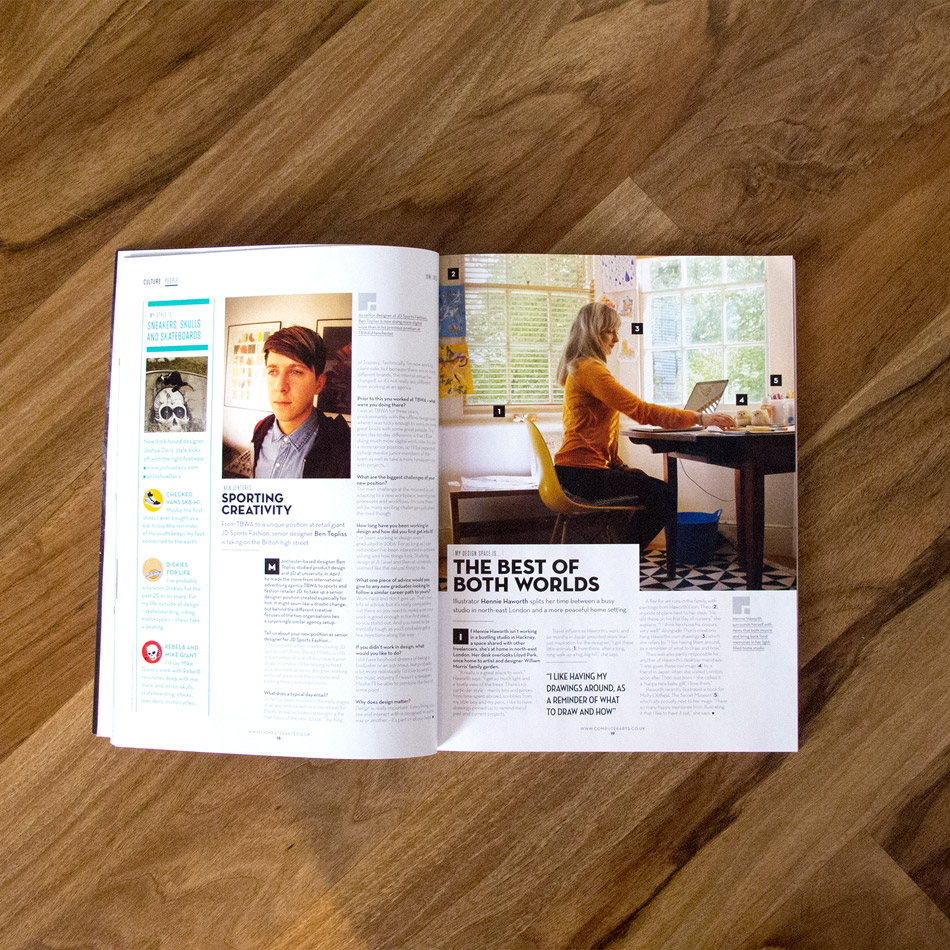
I was fortunate to enough to be interviewed for this months edition of Computer Arts magazine regarding my new job. I have subscribed to the magazine for a number of years I feel pretty honored to grace a full page of the newly redesigned and industry renowned magazine.
Go check it out, available at all good stockists...
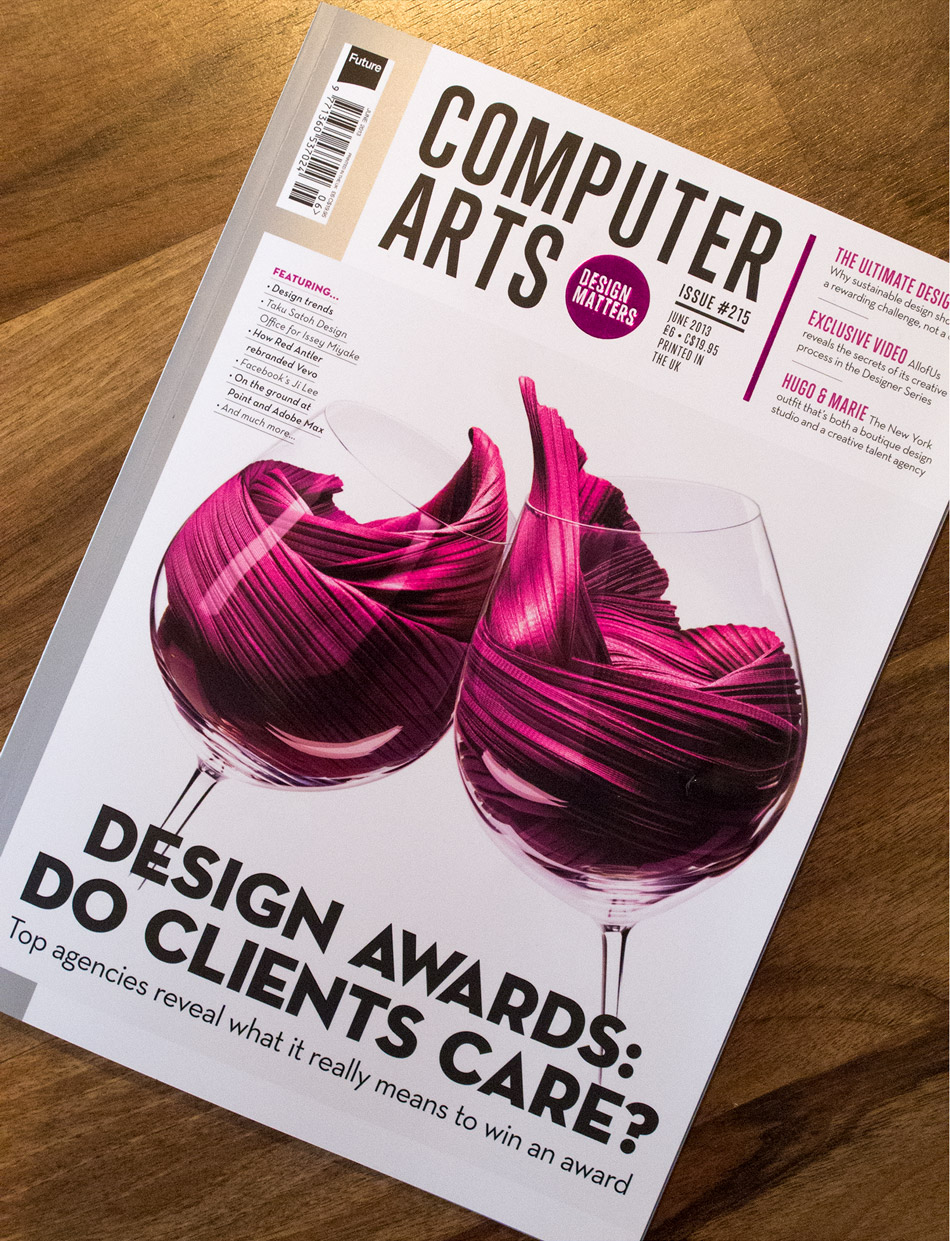
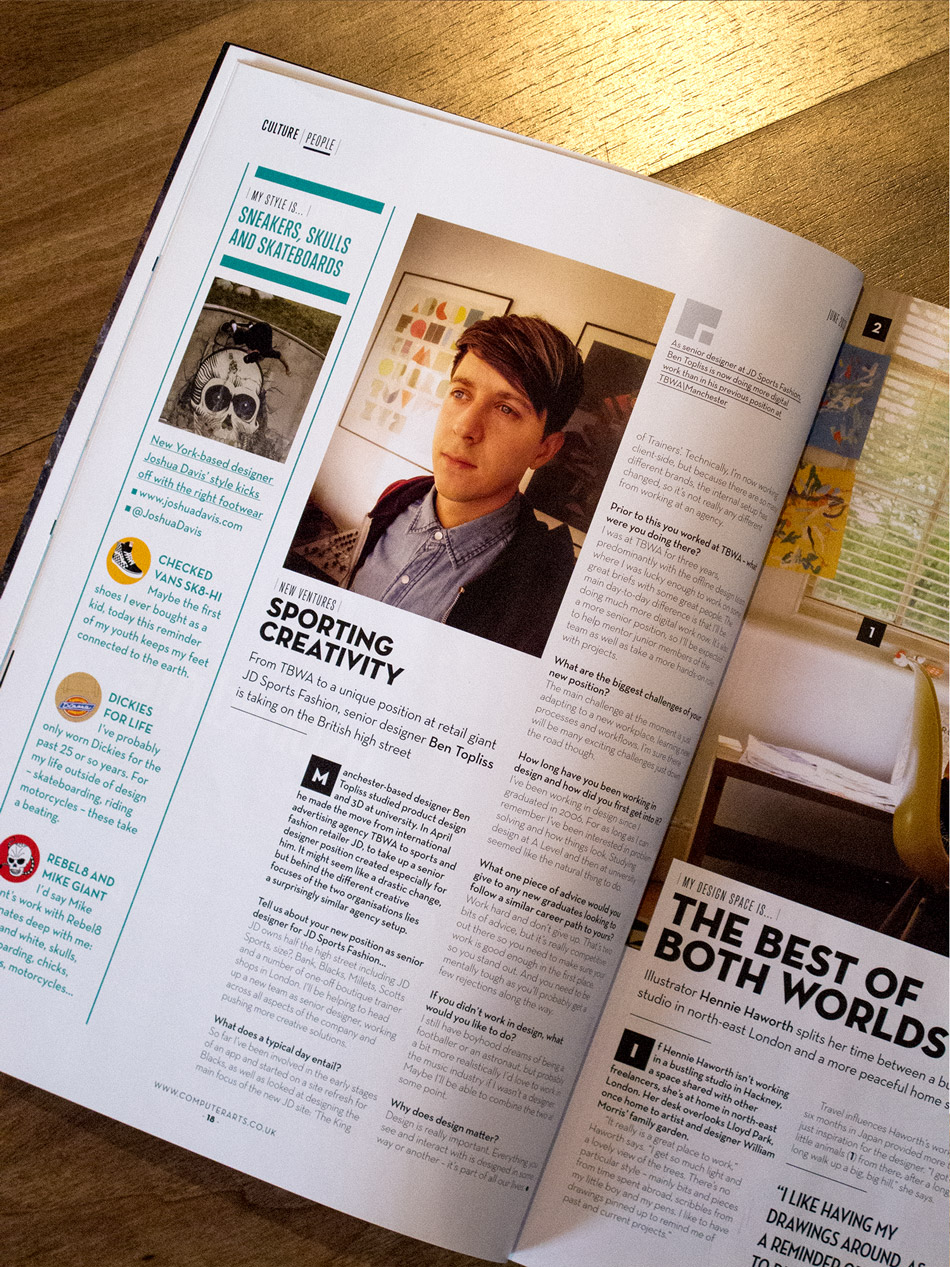
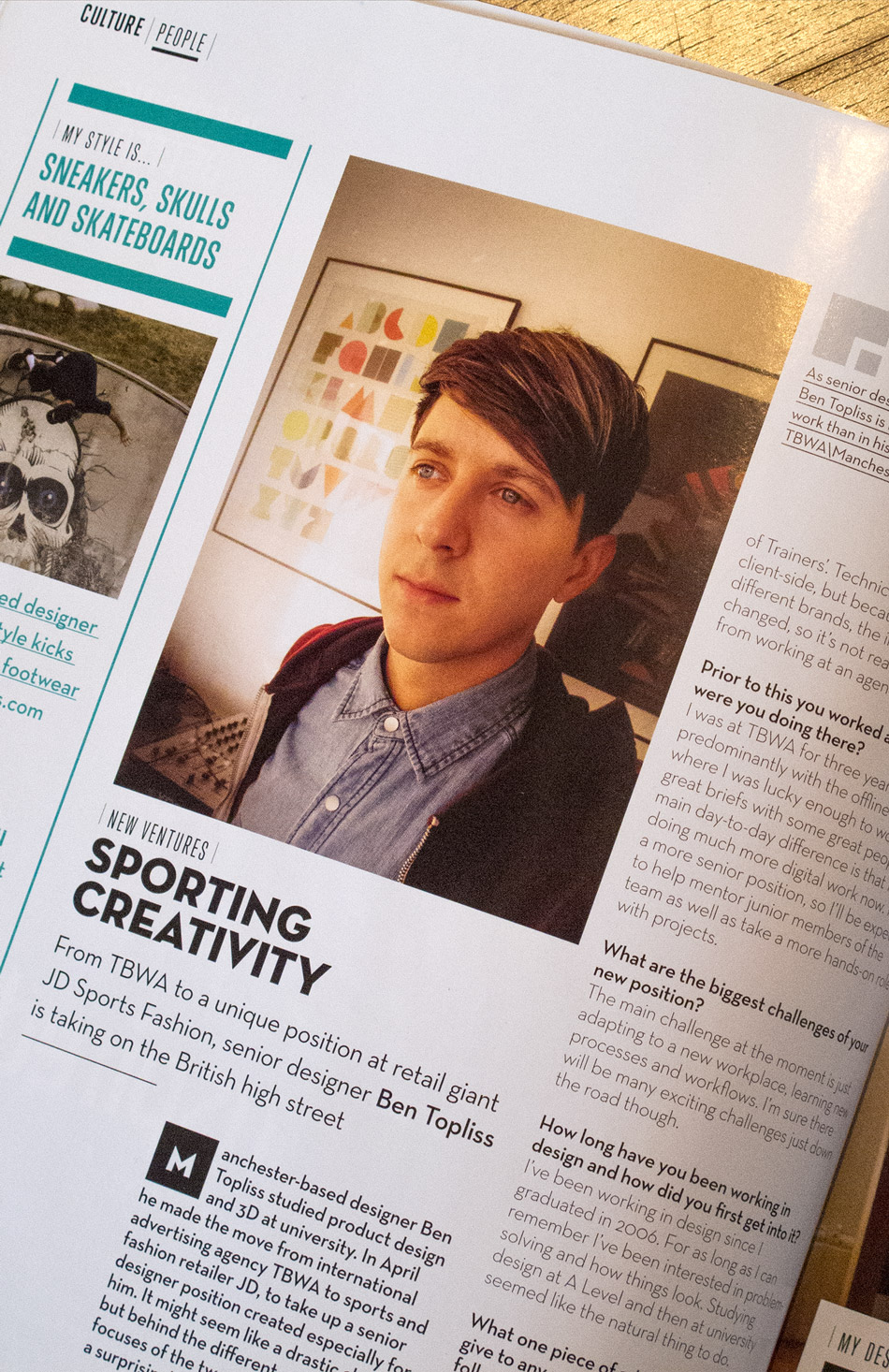
Contact.
ben[@]bentopliss.com
+44 (0) 7825 814797
Graphic Design & Creative Direction.
© 2023.
All work displayed remains the property of either Ben Topliss,
the agencies and/or the clients
it was created for.













![Reebok – NBA All Star Event [2022]](https://i0.wp.com/bentopliss.com/assets/2022/03/Project_panel_480x328px__0007_ALLSTAR.jpg?fit=480%2C328)


























![Reebok x Jurassic Park [Pitch]](https://i0.wp.com/bentopliss.com/assets/2022/03/Project_panel_480x328px__0006_JP.jpg?fit=480%2C328)






































































